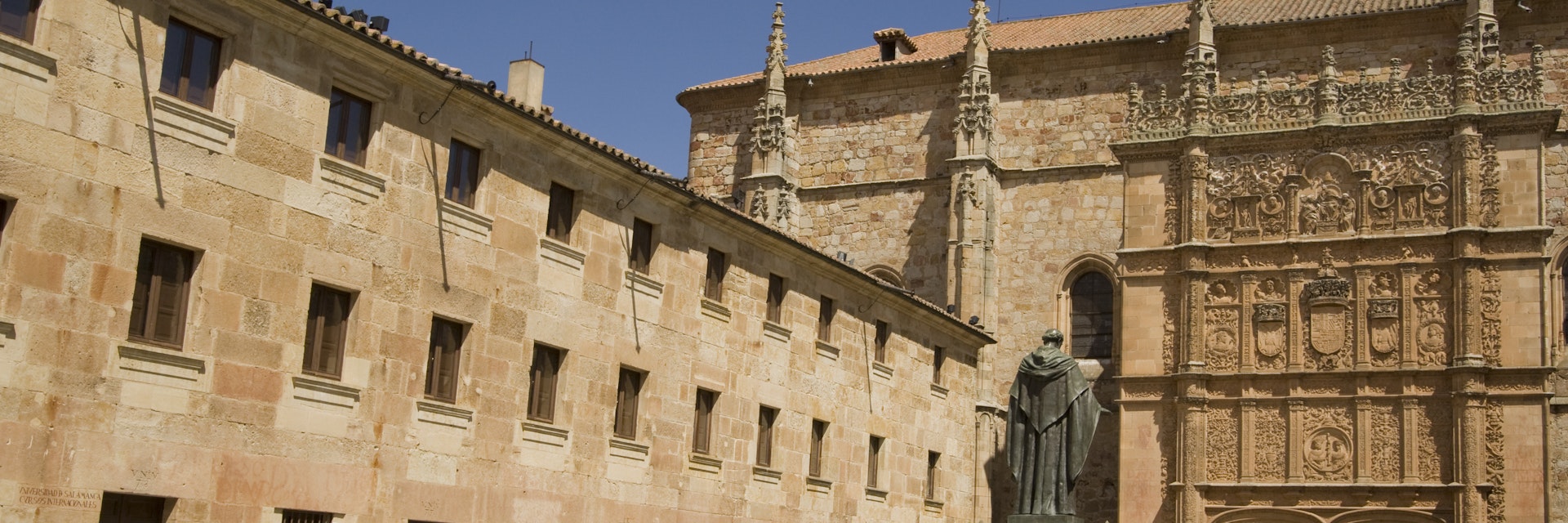Founded initially as the Estudio General in 1218, the university reached the peak of its renown in the 15th and 16th centuries. The visual feast of the entrance facade is a tapestry in sandstone, bursting with images of mythical heroes, religious scenes and coats of arms. It's dominated by busts of Fernando and Isabel. Behind the facade, the highlight of an otherwise-modest collection of rooms lies upstairs: the extraordinary university library, the oldest in Europe.
Containing some 2800 manuscripts gathering dust, the library is a real cemetery of forgotten books. Note the fine late-Gothic features and beautiful techumbre (carved wooden ceiling).
Among the small lecture rooms arranged around the courtyard downstairs, the Aula de Fray Luis de León was named after the celebrated 16th-century theologian and writer whose statue adorns the Patio de las Escuelas Menores outside. Arrested by the Inquisition for having translated the 'Song of Solomon' into Spanish, the sardonic theologian returned to his class after five years in jail and resumed lecturing with the words, 'As I was saying yesterday…'
The Escalera de la Universidad (University Staircase) that connects the two floors has symbols carved into the balustrade, seemingly of giant insects having a frolic with several bishops – to decode them was seen as symbolic of the quest for knowledge.






